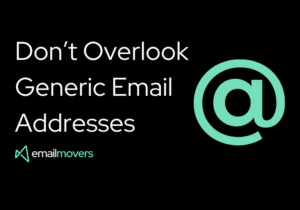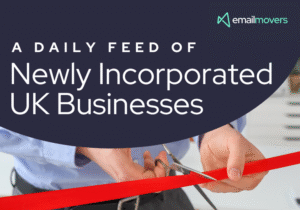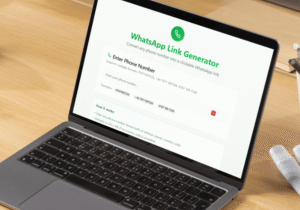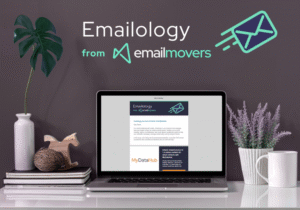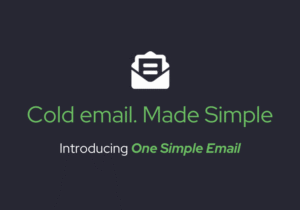Business email lists are vital for boosting marketing ROI as they enable precise audience targeting and personalised communication. Divide lists according to people's traits and actions. This allows campaigns to provide content suited to each group. It boosts interaction and more people will open the messages. This leads to higher conversion rates and increased revenue. Personalisation techniques, such as dynamic content and automated behavioural triggers, strengthen customer loyalty and brand value. Continual analysis of key performance indicators helps refine strategies, ensuring compliance with regulations like GDPR. Utilising these strategies effectively can transform your email marketing performance. Discover how to optimise your campaigns and deepen customer relationships further.
Key Takeaways
- Business email lists enable precise audience targeting, increasing the effectiveness of marketing campaigns and improving ROI.
- Segmentation of email lists allows for personalised content, enhancing engagement and conversion rates.
- Targeted email campaigns foster customer loyalty, leading to higher readiness to act and increased revenue.
- Continuous data analysis of email lists refines marketing strategies, optimising investments and maximising returns.
- Compliance with regulations builds trust, ensuring sustainable engagement and protecting reputation, thus contributing to a positive ROI.
Understanding Business Email Lists
In the realm of digital marketing, understanding business email lists is crucial for enhancing targeted communication and maximising return on investment (ROI). A meticulously curated email list serves as the backbone of successful email marketing strategies, enabling businesses to connect with their audience on a personal level, foster customer retention, and ultimately drive revenue growth.
Business-to-business (B2B) email marketing demands an astute approach to managing and leveraging email lists. Unlike consumer-focused strategies, B2B communications require precision in targeting decision-makers and influencers within organisations. Therefore, crafting a comprehensive email list that includes relevant industry contacts is essential. This list acts as a dynamic asset, offering the potential to optimise your email marketing campaigns by ensuring messages reach the appropriate audience, thereby increasing engagement rates and conversion potential.
The power of an effective email list lies in its ability to facilitate personalised communication. Through segmentation and data analysis, businesses can tailor their messaging to resonate with specific segments of their audience. This targeted approach not only enhances engagement but also strengthens customer retention, as recipients receive content that aligns with their needs and interests.
Targeting the Right Audience
Building on the importance of a well-curated email list, targeting the right audience becomes the next pivotal step in maximising marketing ROI. In the realm of email marketing efforts, precision is power. By honing in on the audience most likely to engage with your brand, you amplify the effectiveness of your campaigns, ensuring that your message resonates with those who matter most.
Segmentation is the key to this process, enabling you to divide your audience into distinct groups based on specific criteria such as demographics, purchasing behavior, or engagement levels.
By implementing segmentation, you tailor your content to match the unique preferences and needs of each group, significantly enhancing open rates and engagement. This targeted approach not only captures attention but also fosters deeper connections, as recipients receive content that is relevant and valuable to them. Consequently, these personalised interactions elevate the likelihood of conversions, directly contributing to your goal to maximise your ROI.
Furthermore, by analysing data gathered through segmentation, you can continuously refine your strategies, adapting to changing customer behaviours and preferences. This dynamic approach ensures your email marketing efforts remain agile and effective, consistently driving results.
As you become adept at targeting the right audience, you gain a competitive edge, transforming your email marketing into a powerful tool that not only reaches but also influences your audience. In this pursuit of precision and personalisation, your ROI is not just maximised—it is propelled to new heights, solidifying your position as a leader in your industry.
Crafting Effective Email Campaigns
Crafting effective email campaigns is a critical component in the pursuit of maximising marketing ROI. In the competitive landscape of modern business, an email marketing campaign that is both impactful and strategic can significantly boost your ROI. The key lies in executing an effective email marketing strategy that captivates the recipient, encourages engagement, and ultimately leads to higher conversion rates.
To create a powerful email marketing campaign, it is essential to develop a clear understanding of your target audience's needs and preferences. This knowledge forms the bedrock of your strategy, enabling you to craft messages that resonate and prompt action. An effective email should be both compelling and concise, with a strong call to action that guides the recipient towards a desired outcome.
Moreover, the design of the email plays a pivotal role. A visually appealing layout, coupled with a coherent structure, ensures that your message is not only read but also remembered. The strategic use of visuals can enhance comprehension and retention, thereby increasing the likelihood of conversion.
Timing your emails is another critical factor. Sending your message at the optimal time can significantly impact open and click-through rates. Understanding when your audience is most likely to engage with your content can give you a competitive edge, further boosting your ROI.
Personalisation Techniques
Personalisation techniques are pivotal in enhancing the effectiveness of email marketing campaigns. By tailoring content that resonates with individual email subscribers, businesses can substantially increase their marketing ROI.
Personalisation in email marketing extends beyond merely addressing the recipient by name; it involves crafting messages that align with their specific preferences and behaviours. This approach not only bolsters engagement but also fortifies brand loyalty.
Here are four powerful personalisation techniques to elevate your email marketing strategy:
- Segmentation: Divide your email subscribers into distinct groups based on criteria such as demographics, purchase history, or browsing behaviour. Segmentation allows for the delivery of more relevant content to each subgroup, enhancing the overall user experience and increasing the likelihood of conversion.
- Dynamic Content: Utilise dynamic content blocks that change based on subscriber data. This could mean showing different product recommendations, images, or offers within the same email template, ensuring that each subscriber receives a message tailored to their interests.
- Behavioral Triggers: Implement automated emails that are sent in response to specific subscriber actions, such as cart abandonment or browsing certain product categories. These timely, context-aware messages can effectively nudge subscribers towards completing a purchase.
- Personalised Recommendations: Leverage data analytics to provide personalised product or content recommendations within emails. Showing subscribers items they are likely interested in can significantly boost click-through rates and conversions.
Increasing Engagement Rates
To further enhance the effectiveness of email marketing campaigns, increasing engagement rates becomes a focal point. As a powerful marketing channel, email campaigns offer unparalleled opportunities to connect with audiences and drive desired actions. According to recent email marketing statistics, marketers who prioritise engagement not only achieve higher open and click-through rates but also foster greater customer loyalty. This translates into more robust returns on investment and a competitive edge in the marketplace.
The key to unlocking superior engagement lies in understanding and responding to the diverse needs of your audience. Segmenting your email lists is a strategic approach that allows marketers to tailor content that resonates with specific groups. By analysing customer behaviour, preferences, and demographics, businesses can craft messages that speak directly to each segment’s interests and motivations. This targeted communication enhances relevance, making recipients more likely to engage with the content.
Moreover, the art of timing is essential in increasing engagement rates. Sending emails when recipients are most likely to check their inboxes can significantly boost visibility and response rates. Advanced email marketing platforms offer analytics that provide insights into optimal sending times, enabling marketers to fine-tune their strategies.
The journey to improving engagement rates is not solely about reaching inboxes but about delivering value that captivates and compels. By leveraging precise segmentation and data-driven insights, businesses can transform their email marketing campaigns from mere messages into impactful interactions.
In doing so, companies not only enhance the effectiveness of their marketing channels but also cultivate a network of loyal customers who are engaged and ready to act.
Building Customer Relationships
Nurturing customer relationships through email marketing is a pivotal strategy for businesses aiming to foster long-term loyalty and trust. As digital marketing channels evolve, the significance of building email lists has become more pronounced.
Strategically designed email campaigns allow businesses to establish a direct line of communication with their audience, enhancing customer relationships and significantly boosting the ROI for email marketing efforts.
To effectively build and maintain robust customer relationships via email marketing, consider the following key strategies:
- Personalisation: Tailor your email content to reflect the individual preferences and behaviours of your customers. This level of customisation demonstrates an understanding of their needs, which can significantly strengthen the bond between your brand and your audience.
- Consistent Engagement: Regularly communicate with your customers by providing valuable content that resonates with them. This consistent engagement helps to keep your brand top-of-mind and encourages a sense of community among your audience.
- Feedback Loops: Encourage an open line of communication by soliciting feedback from your subscribers. This not only enhances customer satisfaction but also provides valuable insights into their preferences, enabling you to refine your email marketing strategy.
- Exclusive Offers: Reward your loyal customers with exclusive deals and offers. This not only incentivises continued engagement but also reinforces their perception of your brand as one that values their patronage.
Measuring Campaign Success
Assessing the effectiveness of your email marketing efforts is as important as nurturing customer relationships. To truly harness the potential of business email lists, one must strategically measure campaign success. This involves a rigorous analysis of key performance indicators (KPIs) that directly impact your email marketing ROI. The power lies in the data—understanding open rates, click-through rates, and conversion rates empowers you to refine strategies and achieve superior results.
To measure campaign success, businesses need to deploy robust email marketing software. These platforms provide advanced analytics that reveal insights into subscriber behaviour and engagement levels. For those seeking to solidify their market dominance, leveraging this data is non-negotiable. The ability to calculate the ROI of email campaigns allows marketers to justify spend and optimise future investments.
It’s about more than just numbers; it’s about translating metrics into meaningful action. The ROI may vary depending on the nature of your campaign and target audience, but precise measurement is key to unlocking growth. Start by calculating the ROI of email by comparing the revenue generated against the costs incurred. This includes evaluating not only direct sales but also long-term customer value.
A potent strategy is to segment your audience and tailor content to maximise engagement, thereby increasing your return. Ultimately, the pursuit of excellence in email marketing demands a commitment to continuous improvement. By systematically measuring campaign success, businesses gain the insights needed to propel their marketing endeavours and secure an enviable position in their industry.
Optimising Email Deliverability
In the realm of email marketing, optimising email deliverability stands as a critical factor in ensuring your messages reach the intended audience. A high deliverability rate amplifies your marketing efforts, translating to increased open and click-through rates, which are essential for maximising your return on investment.
To harness the full potential of using email marketing, you must strategically focus on enhancing your deliverability metrics.
To ensure you always achieve optimal email deliverability, consider the following powerful strategies:
- Segment Your Audience: Segmentation is key to delivering personalised content that resonates with your recipients. By dividing your email list into targeted groups based on demographics, behaviour, or preferences, you increase the relevance of your communications, which in turn boosts engagement and reduces spam complaints.
- Maintain Clean Lists: Regularly update and clean your email list to remove inactive or invalid addresses. This practice not only enhances your sender reputation but also improves deliverability by ensuring your messages reach active, interested recipients.
- Authenticate Your Emails: Implement authentication protocols such as SPF, DKIM, and DMARC to authenticate your emails. These measures reassure email service providers that your messages are legitimate, reducing the likelihood of them being marked as spam.
- Monitor Engagement Metrics: Track key metrics like open and click-through rates to gauge the effectiveness of your campaigns. High engagement signals to email service providers that your content is valuable, thus improving deliverability.
Legal Considerations and Compliance
When diving into the intricacies of email marketing, legal considerations and compliance are paramount to safeguarding your business and maintaining a trustworthy relationship with your audience. In an era where data privacy is a growing concern, ensuring that your marketing team is well-versed in the legal frameworks governing email communications is both a strategic advantage and a necessary responsibility.
Compliance with regulations such as the General Data Protection Regulation (GDPR) and the CAN-SPAM Act is crucial for preventing costly penalties and preserving your brand’s reputation.
Email marketing remains a potent tool for driving return on investment, but this power is contingent upon adhering to these legal standards. A successful email campaign begins with obtaining explicit consent from your recipients. This not only aligns with regulatory requirements but also fosters trust and engagement.
Your marketing team must ensure that every email sent includes a clear and accessible option for recipients to opt-out, reinforcing your commitment to respecting consumer preferences.
Moreover, maintaining comprehensive records of consent and regularly auditing your email processes are effective strategies for demonstrating compliance. This diligence not only minimises risk but also empowers your business to navigate potential legal inquiries with confidence.
In crafting a successful email strategy, understanding the nuances of legal considerations and compliance empowers your marketing team to execute campaigns that are not only effective but also ethically sound.
Strategies for Continuous Improvement
To ensure sustained success in email marketing, employing a framework of continuous improvement strategies is essential. In a competitive landscape where the desire for power and influence drives marketing efforts, refining and optimising your approach is crucial to boost the ROI with email marketing.
By focusing on data-driven decisions, businesses can enhance their strategies and remain at the forefront of digital marketing.
Here are four key strategies for continuous improvement in email marketing:
- Analyse Campaign Performance: Regularly review the performance of your email campaigns. Utilise metrics such as open rates, click-through rates, and conversion rates to identify patterns and areas for improvement.
Data-driven insights are invaluable for making informed adjustments that can lead to more successful outcomes. - Segment Your Audience: A one-size-fits-all approach is outdated. To maximise the impact of your emails, segment your audience based on demographics, behaviours, and preferences.
Tailoring content to specific groups enhances engagement and increases the likelihood of conversion, thereby boosting your ROI with email marketing. - A/B Testing: Implement A/B testing for subject lines, content, and call-to-action buttons. This strategy allows you to determine what resonates best with your audience.
By continuously testing and refining elements, you can optimise your campaigns for greater effectiveness and impact. - Feedback Loop: Encourage feedback from your audience to understand their needs and preferences better. Use surveys and direct responses to gauge satisfaction and identify areas for improvement. This data-driven approach ensures your strategies align with audience expectations, leading to enhanced engagement and loyalty.
Incorporating business email lists into your marketing strategy is a game-changer for driving ROI. By leveraging precise segmentation, personalisation techniques, and continuous performance analysis, businesses can craft targeted campaigns that foster engagement, improve conversion rates, and ultimately increase revenue. Ensuring compliance with legal standards further strengthens trust and helps sustain long-term success. With the right approach, email marketing becomes a powerful tool not just for reaching your audience, but for building lasting relationships and maintaining a competitive edge in your industry.
Get In Touch With Us!
Call us on 01723 800030
Or use the form here




